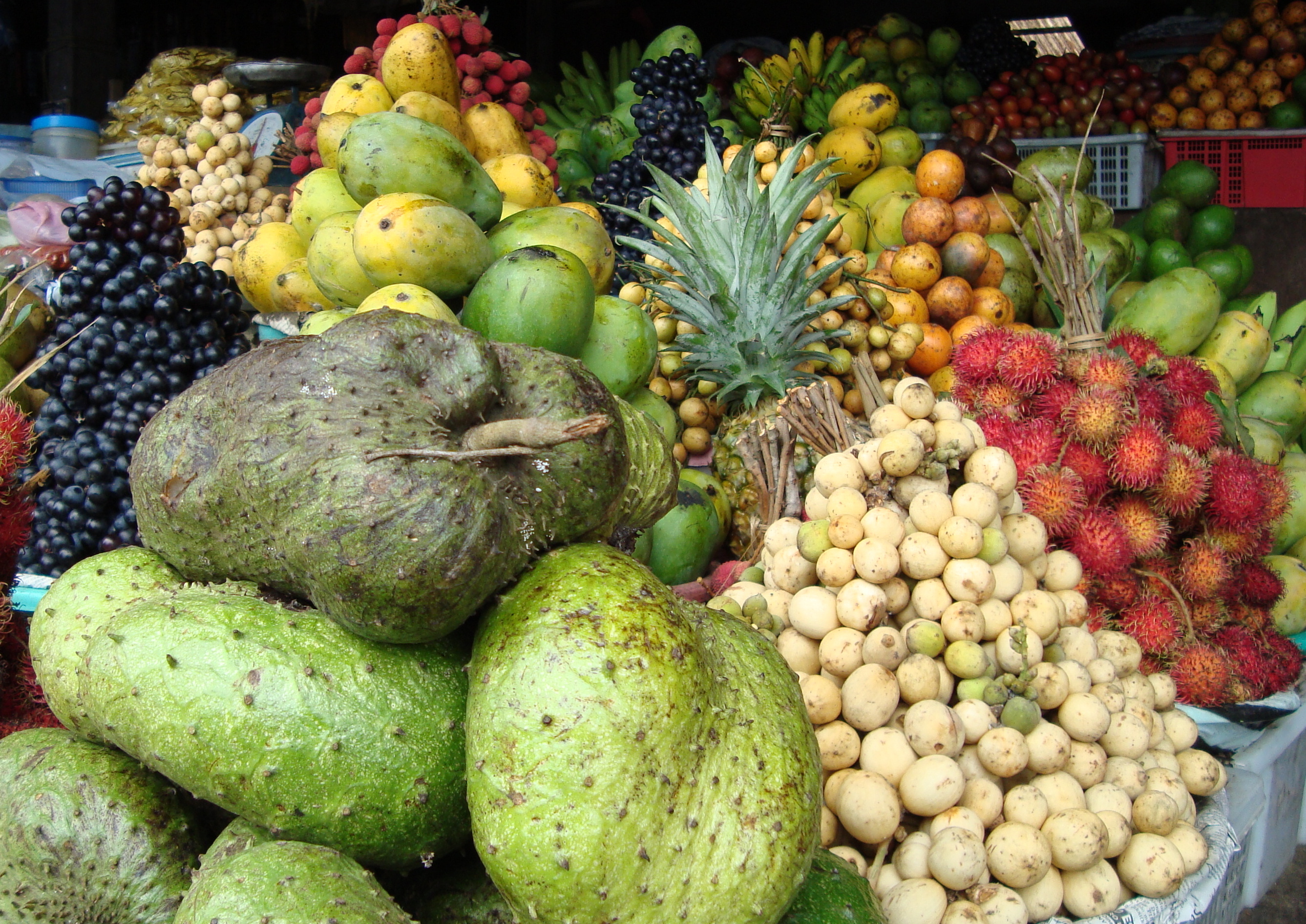Our work
The two year program comprises of four workshops, and supporting fieldwork and laboratory analysis. Workshops will held in Mulawarman and will be attended by academic staff and research students from both Indonesia and the UK.

Workshop 1:
Pre-workshop collections of fruit of a targeted but diverse range of species will be made from a variety of locations in East Kalimantan. Fruits will be brought back to Mulawarman University where the pericarp, flesh and seeds will be dried, ground and subjected to laboratory-based phytochemical analysis to determine their micronutrient and vitamin (and vitamin precursor) content.
The key deliverables from workshop 1 will be:
a) A cohort of MSc-level students trained in phytochemical analytical techniques,
b) A scientific paper reviewing the nutritional potential of the indigenous tropical forest fruit,
c) Identification of a small number of promising species to investigate further.
Workshop 2:
Pre-workshop collections of fruit from the selected promising species will be made from a wide variety of locations in East Kalimantan. Corresponding soil samples will be collected from each location and a tree crop inventory will be carried out to determine fruit productivity. Fruits and soil will be brought back to Mulawarman University where each will be dried, ground and subjected to chemical analysis. For each species, statistical analysis will be carried out to determine the relationship between fruit phytochemical composition and soil micronutrient content. Meta-analysis will be carried out to determine whether certain species are more efficient accumulators of scarce soil minerals than others.
The key deliverables from workshop 2 will be:
a) A cohort of MSc-level students trained in tree fruit inventory methods,
b) A series of scientific papers focussing on inter and intra-specific variation in tropical forest fruit nutritional status,
c) A scientific paper addressing how tropical forest fruit nutritional status relates to soil nutrient status.
Workshop 3:
Once nutritionally promising tropical forest fruit species have been identified, a workshop will be held to train research students in participatory social science research methods. After training, students will conduct village-level surveys to identify the social, economic and/or cultural barriers to exploiting the nutritional benefits of the fruit species identified in workshop 1.
The key deliverables from workshop 3 will be:
a) A cohort of MSc-level students trained in participatory social research methods,
b) A series of scientific papers describing the barriers to exploitation of tropical forest fruit,
c) A policy brief suggesting ways in which existing barriers to tropical forest fruit may be overcome,
d) A policy brief suggesting ways in which nutritionally promising tropical forest fruit could be commercialised.
Workshop 4:
A final workshop will consider the results of workshops 1 - 3, and will finalise plans to develop a longer term interdisciplinary and collaborative teaching and research program focussed on forest fruits and nutrition.
The key deliverables from workshop 4 will be:
a) A joint MSc-level educational programme between Bangor and Mulawarman Universities focussed on non-timber forest products,
b) A research proposal to fund further research in this area.